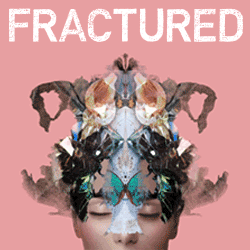Testimony to Advisory Commission on Property Tax Reform
Thursday, June 17, 2021
Testimony to Advisory Commission on Property Tax Reform
On behalf of Dance/NYC (www.dance.nyc), a service organization that serves over 5,000 individual dance artists, 1,200 dance-making entities, and 500 non-profit dance companies and the many for profit dance businesses based in the metropolitan New York City area, including BIPOC (Black, Indigenous, and Peoples of Color) dance workers, immigrants, and disabled dance workers. Dance/NYC joins colleague advocates working across creative disciplines in thanking you for your leadership during this time and in requesting:
- Legislation that extends commercial and residential rent cancellation and stabilization to help address the current and potential displacement of cultural organizations, businesses and individual arts workers;
- Extending property tax exemption to all non-profit organizations not only educational and religious institutions; and
- Legislation to provide tax incentives to landlords who rent or lease to non-profit organizations and for-profit businesses, and in doing so help the cultural sector retain their physical spaces and avoid displacement.
We express our gratitude to the City Councilmembers, City Officials, Mayor’s Office and other dedicated workers who have contributed to the recovery of the city’s arts and culture sector. Current relief programs such as the Paycheck Protection Program, Shuttered Venue Operating Grants, and small business recovery grants are providing some support to the arts and cultural sector as it continues to adapt to the new realities of the ongoing pandemic. With gratitude, we believe that there are further considerations to be made to property tax laws in order for arts and culture nonprofits, particularly the hardest hit small budget organizations, to recover and thrive and be sustainable as the City reopens and to continue to be a part of the fabric of this great City for generations to come.
The City’s arts and culture sector was the first to shut down and will be the last to fully reopen with stark financial losses. According to Americans For the Arts’ report “The Economic Impact of Coronavirus on the Arts and Culture Sector” (http://bit.ly/AAACovidImpact), the national economic impact of COVID-19 on arts and culture includes losses of $14.6 billion and still rising. In NYS, the arts and culture sector generates $100 billion in economic activity accounting for 7.5% of the New York State Gross State Product. Of this economic engine, with NYC-based dance non-profit organizations alone contributing over $300 million. This figure is largely understated as it only includes organizations with 501c3 status indicating that the actual contribution is much larger with the inclusion of fiscally sponsored organizations, for profit dance studios and individual artists. The enduring cost of this pandemic is significant for both independent arts workers and organizations/groups, and is disproportionately impacting BIPOC, immigrant and disabled artist communities.
Since the start of the pandemic, Dance/NYC has been conducting the Coronavirus Dance Impact Study (http://bit.ly/DNYCImpactSurvey), which is a comprehensive research study on the impact COVID-19 is having on the dance sector. Dance/NYC’s Coronavirus Dance Impact Survey found that dance organization, group, and project budgets shrunk by nearly one-third (31% on average) due to earned and contributed revenue losses. 18% of dance organizations, groups, and projects believe that permanent closure is likely or extremely likely; 84% of those facing permanent closure have budgets under $100K. Separately, Dance/NYC has been tracking organizational closures and is aware of at least 24 organizations and facilities that have permanently closed their doors due to the pandemic; the majority of which includes studio facilities which are primarily small businesses and beacons in their communities. In Dance/NYC Defining “Small-Budget” Dance Makers in a Changing Dance Ecology (www.dance.nyc/sbdmdata2020), we found that 83% of these organizations have existed in NYC for over a decade and 43% have existed for more than 20 years. Infrastructural support to keep arts nonprofits in their physical spaces is crucial to ensuring the resilience of the City’s cultural sector.
The City’s long standing affordability crisis due to high rent and property taxes remains a force behind displacement—one the City has understood well and has already addressed through its wildly successful CIG program. The cultural community has long been experiencing closures of spaces, unaffordable rent and leasing contracts, and continues to identify rent, leases, and property management as the largest expenses in their budgets. While eviction moratoriums are in place, they have simply served as a tool to increase the debt and already precarious financial situation individual arts workers are facing. Dance/NYC has already provided over $1 million in relief support through our Coronavirus Relief Fund (http://bit.ly/DNYCDanceReliefFund) to individual freelance dance workers and organizations but this only alleviates some short term and immediate needs. For studios and performance venues that provide low-cost rentals to independent artists, the repercussions are compounded; losing these spaces puts the working lives of artists and the art itself at risk. These impacts are felt most acutely by artists and organizations led by and primarily serving BIPOC, immigrants, disabled people, and other communities with less access to capital reserves, which in turn stands to exacerbate historical inequities in the field. Comprehensive rent relief legislation and investment in the individual artists are desperately needed to ensure long term survival of our City’s arts and culture workforce.
Cultural institutions rely on earned revenue which has been drastically reduced due to extended closures. Many tenant organizations are unable to make rent payments to landlords that have not offered or can no longer offer relief or flexibility. While rent relief can provide immediate reprieve, property taxes remain a paramount concern for non-profits that own and manage property as well as landlords that lease to non-profits. A two-prong implementable policy solution to address both these issues would be to 1) provide tax exemption for non-profit property owners and 2) provide tax incentives for landlords renting to nonprofit cultural organizations and businesses. This tax incentive could also be made City specific with the creation of a voucher based tax break provided by the City for landlords renting to nonprofit cultural organizations. All of these policy changes would not only provide renters with much-needed relief during the pandemic, but also ensure the long term survival of cultural spaces, mitigating their displacement, and in turn improving the real estate market in NYC, not just for artists and organizations, but also for the very communities they serve.
The arts and culture sector has long contended that nonprofit organizations should universally receive the same benefits that are afforded to religious and educational institutions: exemption from real estate taxes. Non-profits directly benefit the communities in which they are embedded, and the sustainability of non-profit real estate holdings is essential to serving the City’s needs. At the same time, extending property tax incentives to landlords that rent to non-profits on minimum 3-5 year leases at 30-40% below market rate has a twofold benefit: 1) directly supporting the financial viability and sustainable longevity of tenant organizations that would otherwise risk losing their space, while 2) reducing administrative and economic burden on for-profit institutions that lease to non-profits. This provides much-needed relief during the pandemic and ensures the long-term survival of cultural spaces by mitigating their displacement.
Dance/NYC strongly advocates for a vision rooted in justice, inclusivity, equity, and sustainability for the arts and culture industry. These principles are the driving force behind Dance/NYC’s organizational priorities and the lens through which we view the New York City arts and culture ecosystem at large. Dance/NYC joins the City’s arts and culture sector in asking for property tax reform for the cultural sector to ensure the longevity of cultural institutions who have long been a part of the communities in our City. Arts and culture can lead the City’s economic recovery but we need legislation to ensure their survival. The need is great, but the risk of losing this industry is far greater.
For Dance/NYC and its constituents, the most urgent priorities are:
- Legislation that extends commercial rent cancellation and stabilization to help address the current and potential displacement of cultural organizations and businesses;
- Extending property tax exemption to all non-profit organizations; and
- Legislation that provides property tax incentives to landlords who rent or lease to arts and culture non-profit organizations and for-profit businesses to help the sector retain their physical spaces and avoid displacement.
We thank you in advance for your consideration and commend the City’s ongoing efforts to support economic recovery and cultural resilience. Now is the time to act so that cultural institutions, organizations, and workers at all levels continue to thrive for years to come. We look forward to the opportunity to ensure that New York remains a vibrant capital for arts and culture.



